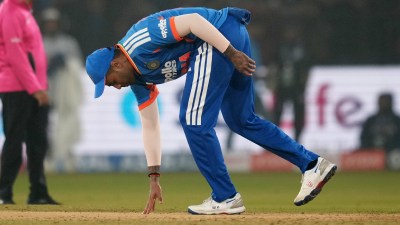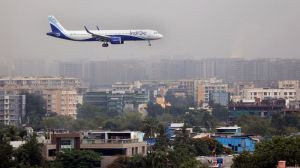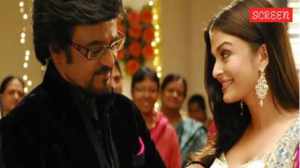10 eminent people who have refused prestigious awards over the years
The reasons for refusal/return/renunciation range from rage at international affairs and killings to personal hurt.
 Poet and artist Rabindranath Tagore renounced his knighthood after the Jallianwala Bagh massacre in 1919. (Source: Wikimedia Commons)
Poet and artist Rabindranath Tagore renounced his knighthood after the Jallianwala Bagh massacre in 1919. (Source: Wikimedia Commons)
The crème de la crème of the Indian literary world is pulsating with anger and frustration at the state of affairs and the performance of the central government.
On 20 October, Sarah Joseph joined an increasing list of littérateur protesting the lack of freedom, and the silence of the Sahitya Akademi on writers and people being killed. On Sunday, nine authors returned their Akademi awards and Kannada author Aravind Malagatti submitted his resignation from the Akademi’s General Council.
The past week saw Urdu novelist Rehman Abbas return his 2011 Sahitya Akademi award, protesting the Dadri lynching incident, soon after writers Nayantara Sahgal and poet Ashok Vajpeyi had returned their literary honours to protest what they termed as an “assault on right to freedom of both life and expression”.
————————————————————————————————-
Also read
In this charged backdrop, we take a look at 10 eminent artists, journalists, writers and politicians who have refused/renounced prestigious awards — with reasons ranging from rage at international affairs and killings to personal hurt.
1. Salim Khan: Padma Shri (2015)
The most recent was writer Salim Khan, who refused to accept the Padma Shri this year saying that it’s too late and others had received it much earlier. “My contribution to cinema has been much more than what is being offered to me (as an acknowledgment). So, I have refused to accept it.”
2. Khushwant Singh: Padma Bhushan (1984)
The journalist was awarded the Padma Bhushan in 1974, but he returned the award in 1984, in protest against the siege of the Golden Temple by the Indian Army (Operation Blue star). In 2007, he was awarded the Padma Vibhushan.
3. Romila Thapar: Padma Bhushan (1992 and 2005)
The historian turned down the Padma Bhushan in 1992 and 2005 saying that she only wanted to “accept awards from academic institutions or those associated with my professional work”
4. Sitara Devi: Padma Bhushan (2002)
The legendary Kathak dancer refused to accept the Padma Bhushan saying, “it is my insult and not an honour”. The exponent was upset that others — junior to her — had received Padma Vibhushans, and declared that “I will not accept any award less than Bharat Ratna”.
5. Sonu Nigam: Filmfare
In 1997, the singer had won the Filmfare award for best singer for the song, ‘Sandeshe Aate Hain’. He reportedly refused to accept the award on stage, saying, “the song had been sung by me and Roop Kumar Rathore. It couldn’t be completed without him, so I can’t understand the logic behind giving this award to me alone.”
6. Rabindranath Tagore: Knighthood (1919)
Arguably modern India’s most famous poet and artist, Rabindranath Tagore was conferred with the Nobel Prize for Literature in 1913. In 1915, he was granted a knighthood by the British Crown, which he renounced after the 1919 Jallianwala Bagh massacre, protesting the mistreatment of Indians by the British.
[related-post]
7. Lata Mageshkar: Filmfare (1958)
This is probably an unusual reason, but singer Lata Mangeshkar refused to accept her first Filmfare award because the statuette was designed in the shape of a woman, and was unclothed. Finally, the organisers wrapped the award with a handkerchief and presented it to the singer. Later, in yet another unusual gesture, after monopolising the best female playback singer category till 1966, Mangeshkar gave up claim to the award to promote fresh talent.
8. Le Duc Tho: Nobel Peace Prize (1973)
In the year 1937, the Nobel Prize for Peace was jointly awarded to Vietnamese politician Le Duc Tho and the US Secretary of State Henry Kissinger for their work negotiating a ceasefire in the Vietnam War. Tho became the first and only person to ever voluntarily refuse the Nobel Peace Prize.
9. Marlon Brando: Academy Award/Oscar (1975)
There was no competing with Don Corleone in 1975, as Marlon Brando was awarded Best Actor Academy Award for his memorable role in The Godfather. But, surprisingly, not only did he not attend the event, but also sent a representative with a letter stating: “I’m representing Marlon Brando this evening and he has asked me to tell you … that he very regretfully cannot accept this very generous award. And the reasons for this being are the treatment of American Indians today by the film industry.”
10. Jean-Paul Sartre: Nobel Prize in Literature (1964)
This refusal created quite a stir in its time. The French author and philosopher wrote a letter of clarification for his refusal, saying that the reasons were both personal and objective, but primarily because he had consistently declined all official honours.
shruti.chakraborty@expressindia.com
- 01
- 02
- 03
- 04
- 05






























